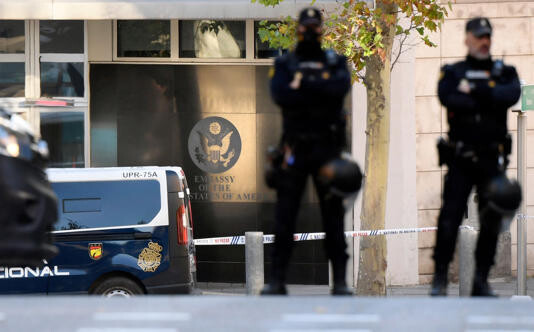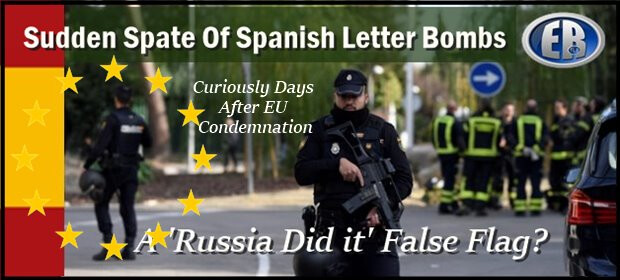
REPORT- Investigation underway into letter bombings at embassies in Spain
An investigation is underway after a series of letter bombs were sent to embassies in Spain. Newsmax's Alex Salvi reports.
Spanish police detonated a suspicious envelope discovered at the US Embassy in Madrid, hours after authorities revealed that prime minister Pedro Sanchez received the first in a series of letter bombs sent to sensitive sites around the country, some of them related to Ukraine.
Barely 24 hours earlier, Ukraine’s embassy in Madrid was targeted with an explosive package which injured a security guard when opened.
Spain’s interior ministry later revealed that Mr Sanchez’s office had received a letter bomb last week on 24 November.
Officials ordered increased security in diplomatic and public buildings shortly before the ministry’s statement, while Wednesday’s embassy package led Kyiv to put all of its consulates around the globe on high alert.
Other letter bombs were delivered to the Ministry of Defence and an air force base in Torrejon de Ardoz outside Madrid on Thursday and Spanish weapons manufacturer Instalaza in Zaragoza on Wednesday.
A government official said that the both the bomb in Zaragoza and the one at the embassy had the same email address written as the sender, according to the Associated Press. No further details were given.
Instalaza manufactures the C90 rocket launcher that Spain has sent Ukraine for its war effort and the air force base.
The Torrejon de Ardoz letter was addressed to the air base’s EU Satellite Centre, which the bloc’s foreign minister Josep Borrell said was playing a strategic role in the Ukraine conflict. Spain’s El Mundo reports that the centre has provided intelligence to Kyiv.
Alarm was first raised after a guard at the embassy was mildly injured in the blast triggered by opening a letter addressed to the ambassador.
The Ukrainian foreign minister Dmytro Kuleba responded by ordering heightened security at Ukrainian embassies worldwide. He also urged an investigation into the attack from his Spanish counterpart.
The Spanish National Court is investigating the blast as a terrorist act and extra security has been placed at the embassy.
Guess who Ukraine and Spain officials are saying did it - one guess - Russia.
Ukraine suggests Russia is to blame for letter bombs sent to Spanish PM and US consulate in Madrid
Spain suspects letter bombs linked to Russia’s war in Ukraine

